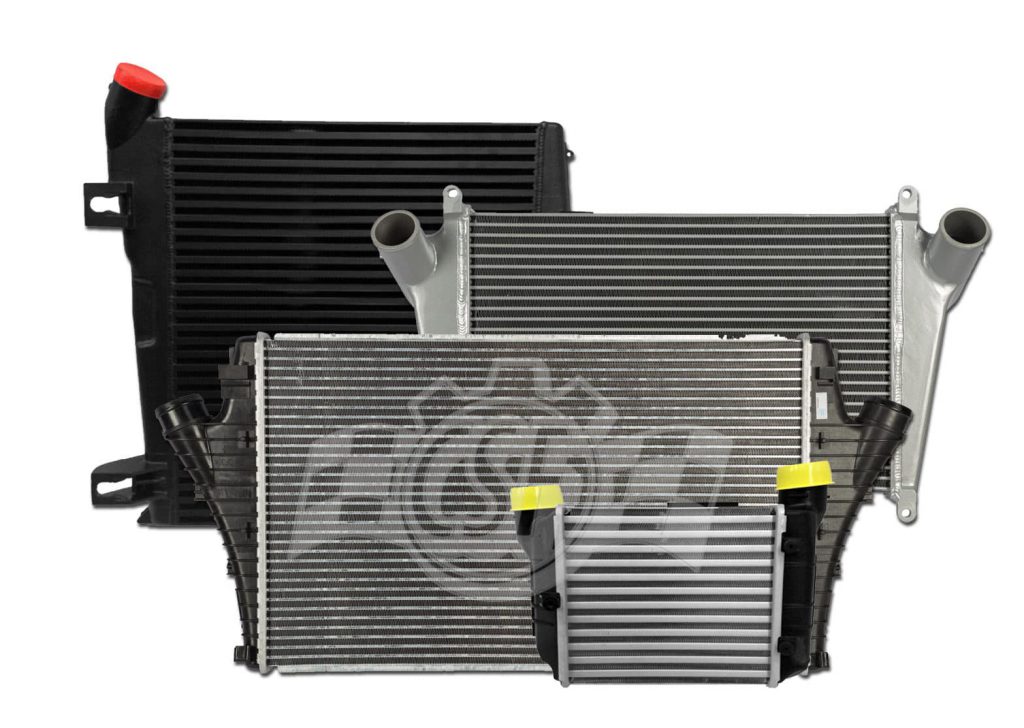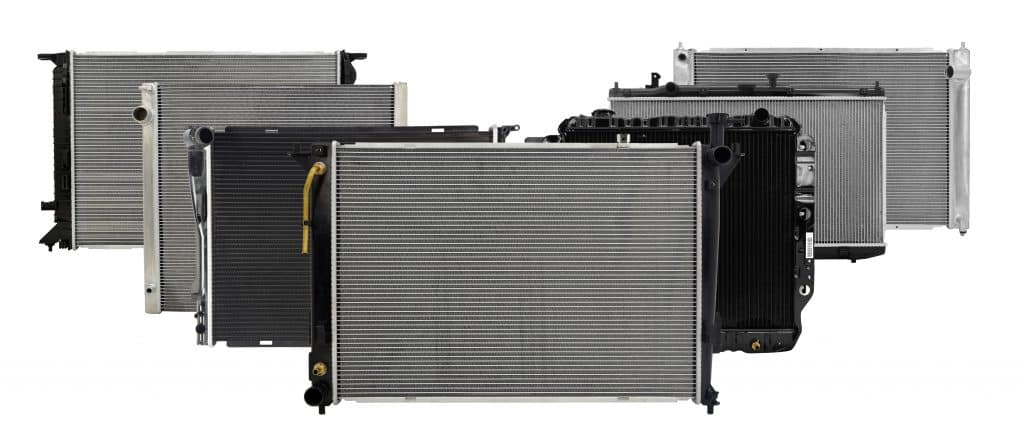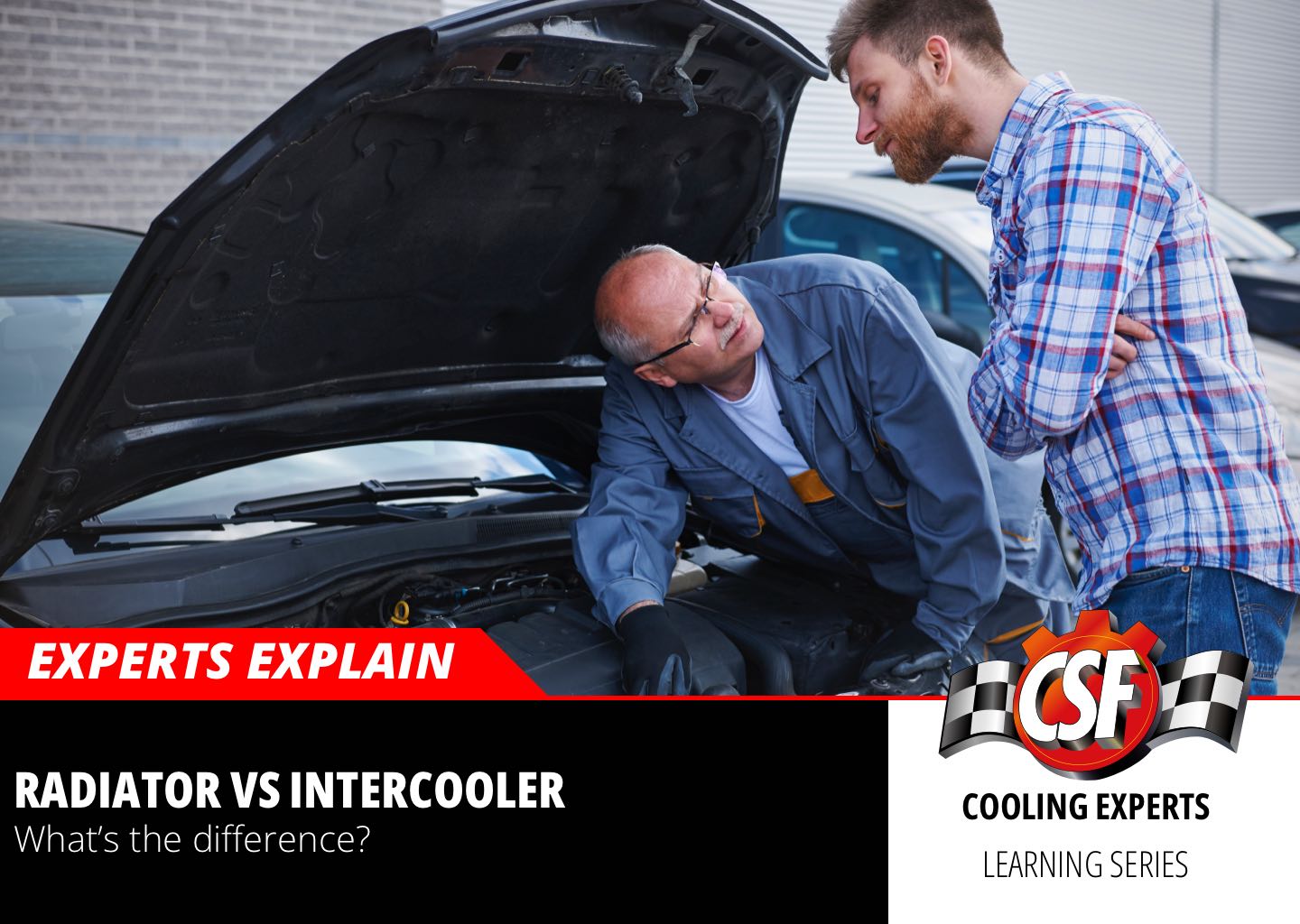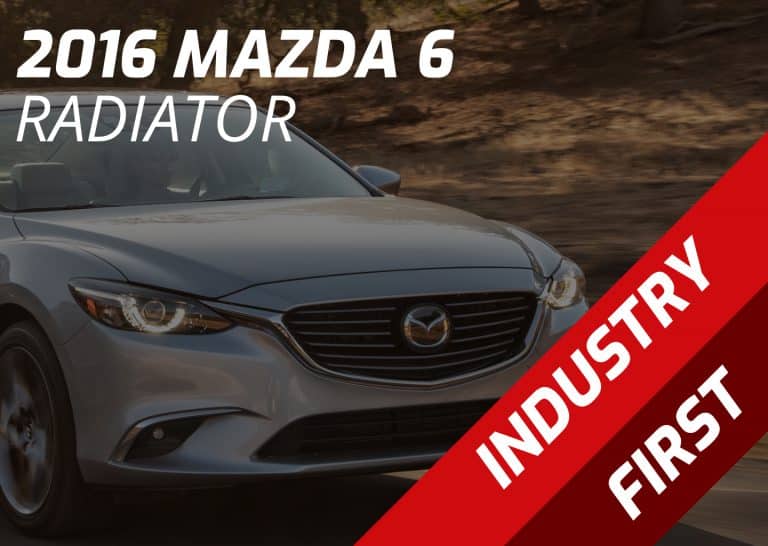Radiator VS Intercooler: What’s the Difference?
Many people ask us – radiator VS intercooler, what’s right for me? A radiator is a heat exchanger used to cool your vehicle’s engine. Intercoolers are air-to-air style heat exchangers. They use to cool intake gasses from the compressor of a supercharger or turbocharger system. Both serve the same purpose and have similar operating principles; however, they each approach it from slightly different angles. The result is that both are essential components for achieving optimal performance, though radiators and intercoolers achieve this in different ways.
How Does an Intercooler Work?

An intercooler works by pulling a hot intake charge through its fins and tubes, where it is cooled due to exposure to ambient air temperatures before allowing it to enter the engine’s cylinders.
How Does a Radiator Work?

A vehicle’s radiator works oppositely by cooling down warm engine coolant from the engine’s cylinders before returning through a series of tubes and exposed fins. A radiator is primarily designed to reduce coolant temperature, while an intercooler is designed to reduce intake air temperatures. Therefore, a radiator operates best when the engine’s coolant is at or below its average operating temperature.
Are There Benefits to Radiators VS Intercoolers?
Intercoolers also play an important secondary role in turbocharged or supercharged vehicles, providing much-needed pressure reduction for properly operating these forced induction systems. Removing excess heat (which all builds up inside the intake tract due to the lack of airflow from the turbo or supercharger) is necessary for the pressure to be effectively controlled. This is why the newer generation Hyundai Sonata (for example) has a barometric-style switch on its climate control panel to warn you if your intake air temperature gets too hot and a secondary fan starts running at lower speeds to help cool things off.
Radiator VS Intercooler Cost
Overall, an intercooler’s cost will be about double that of a radiator. This is due to the amount of piping and extra surface area required by an intercooler and the higher quality materials used (thicker tubes, more fins), which can better handle heat stress and potential pressure build-up from superchargers or turbos being run too hard. In addition, because it uses less material than a radiator system, an intercooler can sometimes be made lighter than even the lightest aluminum radiator systems on today’s market. However, it should be noted that many modern heat exchangers introduce tubes, fins, and other exposed materials into an engine bay, where they are subject to corrosion if not correctly treated.
Which One Should You Use?
Both systems work great for what they are designed to do individually. Still, when used together in a dual-pass configuration (where one system cools the air while another passes it), you can see some nice performance gains! Ensure you only buy heat exchangers from a trusted manufacturer like the cooling experts at CSF so that any cooling efficiency claims they make about their products have been independently verified.
In either case, whether you are considering a radiator versus an intercooler, don’t be afraid to speak with an expert to see if an even better option will work for your needs and budget. A quality air-to-air style intercooler or radiator can provide years of reliable service while ensuring your ride is always ready to roll when needed!
High-Quality CSF Radiators
CSF designers and engineers have sourced high-quality materials for the construction of all our industry-leading radiators. Our engineering team consulted with lead suppliers of aluminum, copper, brass, and durable plastics to ensure CSF products can stand up to the test of time. Our worldwide manufacturing network allows CSF to purchase raw materials in bulk and pass the savings on to you, the consumer. No other cooling company can compete with the classic CSF pairing of quality and affordability.
Affordable CSF Intercoolers
At CSF, we produce a full line of industry-leading vehicle intercoolers with fitment for today’s most popular models on the road. Our intercooler line offers a wide selection of construction types, utilizing high-quality materials. In addition, we build all CSF intercoolers to original equipment specifications allowing for a simple drop-in-fit. So whether you need a simple plastic and aluminum tank, or a heavy-duty bar-and-plate style all-aluminum core, the cooling experts at CSF have you covered!
Performance Cooling Offerings
The Racing & High-Performance Division of CSF Inc. strives to build and engineer the world’s most advanced, efficient, and reliable cooling systems. CSF manufactures sophisticated cooling systems with more than 117 applications, ranging from high-performance all-aluminum direct-fit replacement radiators to complete custom applications for racecars, power sports, off-road, marine, and industrial use. All CSF cooling systems are designed and engineered to maintain optimal engine temperatures, even under extreme driving conditions.







